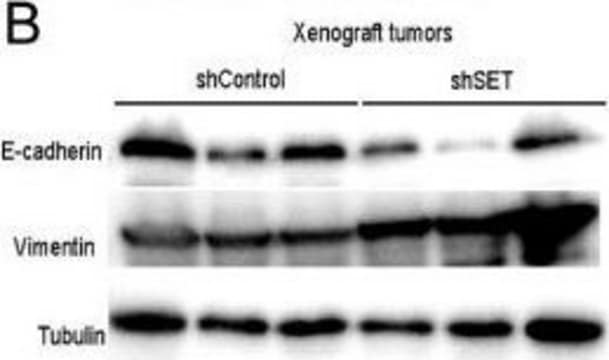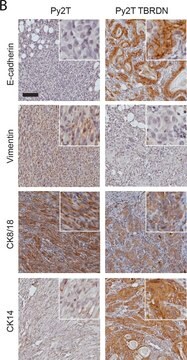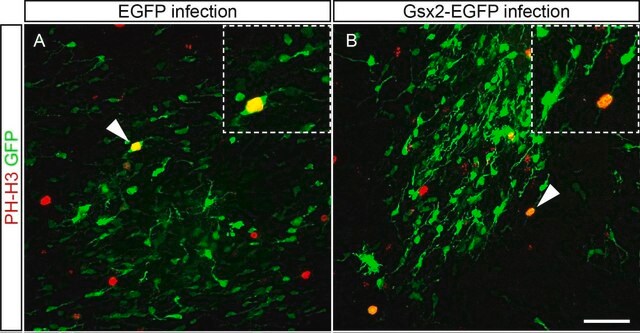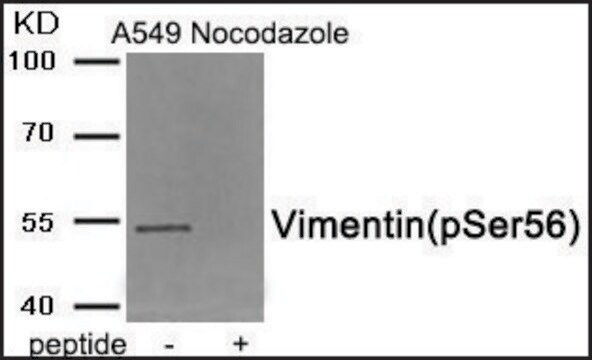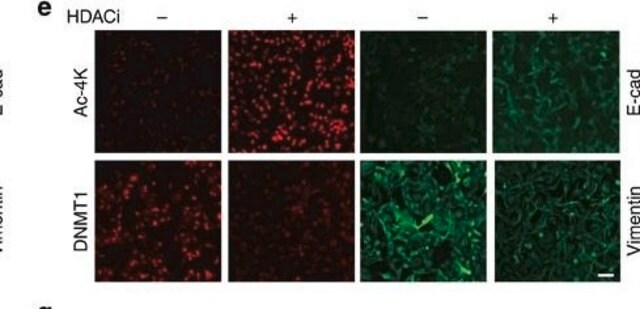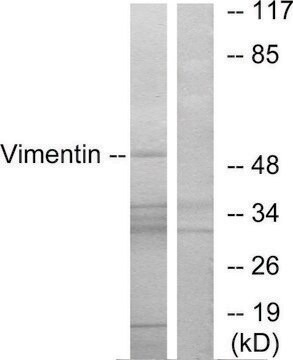SAB4200761
Anti-Vimentin antibody, Mouse monoclonal

clone LN-6, purified from hybridoma cell culture
Synonym(s):
Anti-VIM
About This Item
Recommended Products
biological source
mouse
Quality Level
antibody form
purified from hybridoma cell culture
antibody product type
primary antibodies
clone
LN-6, monoclonal
form
buffered aqueous solution
mol wt
~58 kDa
species reactivity
rat, human, porcine, monkey, bovine, canine, mouse, rabbit, hamster
enhanced validation
independent
Learn more about Antibody Enhanced Validation
concentration
~1 mg/mL
technique(s)
flow cytometry: suitable
immunoblotting: 0.25-0.5 μg/mL using human foreskin fibroblast Hs68 cell line.
immunofluorescence: 1-2 μg/mL using human foreskin fibroblast Hs68 cell line.
immunohistochemistry: 5-10 μg/mL using Human breast carcinoma sections.
immunoprecipitation (IP): suitable
isotype
IgM
UniProt accession no.
shipped in
dry ice
storage temp.
−20°C
target post-translational modification
unmodified
Gene Information
bovine ... Vim(280955)
dog ... Vim(477991)
hamster ... Vim(100689099)
human ... VIM(7431)
mouse ... Vim(22352)
pig ... Vim(100522394)
rabbit ... Vim(100008924)
rat ... Vim(81818)
rhesus monkey ... Vim(705289)
General description
Specificity
Immunogen
Application
- immunoblotting
- immunofluorescence
- flow cytometry
- immunoprecipitation
- immunohistochemistry
Biochem/physiol Actions
Physical form
Storage and Stability
Disclaimer
Not finding the right product?
Try our Product Selector Tool.
Storage Class Code
10 - Combustible liquids
WGK
WGK 3
Flash Point(F)
Not applicable
Flash Point(C)
Not applicable
Certificates of Analysis (COA)
Search for Certificates of Analysis (COA) by entering the products Lot/Batch Number. Lot and Batch Numbers can be found on a product’s label following the words ‘Lot’ or ‘Batch’.
Already Own This Product?
Find documentation for the products that you have recently purchased in the Document Library.
Our team of scientists has experience in all areas of research including Life Science, Material Science, Chemical Synthesis, Chromatography, Analytical and many others.
Contact Technical Service